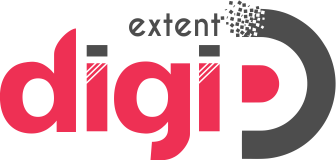There are so many types of Programming languages out there that it can be hard to pick the one that’s right for you! Thankfully, we can help you find the right one with this handy list of the five main types of programming language that you might use while learning or while working on building software or an app with your team! Let’s get started!
Procedural Programming Language
A procedural programming language uses a series of commands to tell a computer what to do. The most popular procedural programming languages include C, Pascal, and Fortran. Using these languages, you can write instructions that resemble how humans naturally communicate. For example, let’s say you want to direct a computer to add two numbers together. In C, you would use an instruction like Add 2 + 2.
While we might read that as add two plus two, computers don’t understand English – they only understand specific commands. Procedural programming languages make it easy for us to give clear directions to computers because they follow a logical pattern: first command -> second command -> third command…etc. This pattern is called a procedure or routine, and each step is called an instruction or statement.
Scripting Programming Language
Scripting languages like JavaScript, PHP, Python and Ruby allow you to manipulate (or script) elements on a web page. These languages are great for tasks like performing mathematical calculations and interacting with databases, but they also have their limitations.
For example, they can’t run as smoothly as compiled code. So while they’re fine for smaller jobs, scripting languages aren’t so good when it comes to projects that need to run quickly or efficiently.
That said, many popular websites rely on scripting languages to function. Facebook uses PHP, Google uses Python, and YouTube uses Ruby. In fact, some argue that these sites would be slower if they were built using other languages. In any case, if you’re looking to get into programming, learning one of these will be useful in your career, especially if you want to work at a company that makes use of them.
Functional Programming Language
Functional programming is one among many programming paradigms. It is a style of writing computer programs that treats computation as the evaluation of mathematical functions and avoid changing-state and mutable data. Some functional languages support lazy evaluation, which allows for building more efficient software in some instances.
A lazy language implementation can evaluate expressions and programs only when their values are needed rather than calculating all expressions in advance. This may make it possible to write parsers, compilers, interpreters, and other program generators in a functional style. However, lazy implementations add an additional layer of complexity that often makes them impractical for everyday use.
The lazy evaluation also complicates reasoning about a program’s behaviour. As such, purely functional programming is not common in the industry but has been successful in specialized domains such as artificial intelligence and symbolic mathematics.
Logic Programming Language
Logic programming is a programming paradigm that models’ knowledge’ and solves problems by searching for answers that satisfy certain logical rules. As such, logic programming deals with statements (which can be true or false) rather than equations or sequences of actions.
Unlike imperative languages, in logic programming, it is not necessary to state explicitly how to solve a problem since inference engines take care of how to search for an answer; programs consist only of definitions of rules and facts. It is called logic because it deduces new conclusions from existing ones using formal logic; to do so, programs often use non-monotonic reasoning.
This type of language has been used to implement expert systems, which are capable of answering some questions autonomously. A special case of expert systems are decision support systems, which can only answer queries posed in natural language. An example of a logic programming language is Prolog.
Object-Oriented Programming Language
Languages that support Object-Oriented Programming (OOP) have constructs that support data encapsulation and inheritance. An object-oriented language will typically allow for procedures to be defined for objects, and it may also allow for classes to be defined by those procedures. Many modern programming languages are object-oriented; C++, Java, Visual Basic .NET, and Python are some examples.
OOP can make programming easier by allowing programmers to represent concepts as objects within code. The OOP paradigm is probably best known in its usage with Microsoft’s .NET Framework, which uses classes extensively.
Conclusion
There is a wide range of programming languages for different kinds of jobs. So, it would be best if you researched each language before adopting one to be an expert in your field. Remember, choose wisely and always make money and enjoy your work.


